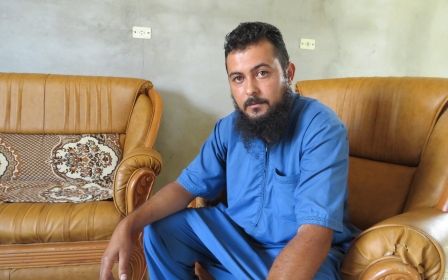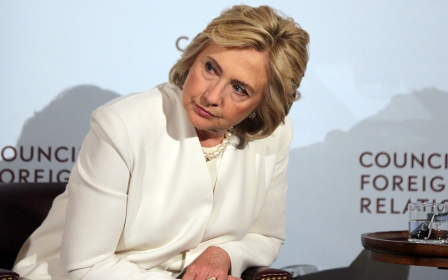Arabic press review: Iraqi bank triggers storm over 'second marriage' loan

Palestinian lawyers sue UK over 103-year-old Balfour Declaration
A group of Palestinian lawyers, international law experts and Palestinian historians have filed a lawsuit against the United Kingdom in a court in the occupied West Bank city of Nablus over the Balfour Declaration, issued by London in 1917, which paved the way for the creation of the state of Israel some 30 years later, Arabi21 has reported.
In November 1917, as the British and French were dividing up what had been Ottoman-held territory until the First World War, British Foreign Secretary Arthur Balfour issued a letter that promised Britain's support for "a national home for the Jewish people" in Palestine.
The letter included the caveat "nothing shall be done which may prejudice the civil and religious rights of existing non-Jewish communities in Palestine".
In 1948, Britain withdrew from Palestine and the state of Israel was established in its wake.
New MEE newsletter: Jerusalem Dispatch
Sign up to get the latest insights and analysis on Israel-Palestine, alongside Turkey Unpacked and other MEE newsletters
The lawsuit demands the annulment of the declaration, as well as an official apology from the United Kingdom to the Palestinian people. It also seeks to hold British authorities fully responsible for the displacement of hundreds of thousands of Palestinians during the 1948 Nakba and the subsequent occupation of Palestinian lands, as well as for its "colonial crimes during the period of its military rule in Palestine".
"The Palestinian judiciary has become a specialised body after Palestine obtained the [permanent non-member] observer status in the United Nations," said lawyer Nael al-Houh.
"The general idea was to file a political lawsuit to hold Britain responsible for the outcome of [the Balfour Declaration]," he added. "The Palestinian judiciary's decision to hold Britain accountable validates the right of every Palestinian citizen who was personally harmed by Britain, whether he or she is a victim of genocide or forced displacement, which obligates British authorities to pay compensation for the damage suffered by the victims."
The head of the National Assembly of Independents (NAI), Munib al-Masri, said in a press conference in Ramallah that "the [British] Mandate indeed was the main cause of the Palestinian people's suffering, and it effectively paved the way for the violation of their rights and the dispossession of their land".
According to Masri, Balfour overlooked "the rights of more than 93 percent of the people [in Mandate-era Palestine], and granted full rights to Jews, who constituted only seven percent of the population at that time.
Libya heading towards a 'political solution'
In an exclusive interview with Saudi newspaper Asharq Al-Awsat, US Ambassador to Libya Richard Norland said Libyans were "tired" of war, adding that a "growing consensus" was emerging among Libyan leaders in favour of a "political solution".
Norland referred to "a progress towards a political settlement" in Libya, stressing that "Washington does not support one party at the expense of another".
Norland defended US policy in Libya. "A political settlement between Libyans opens the door to the expulsion of foreign powers from their country, such as mercenaries of the Russian Wagner group, or the Syrians recruited by Turkey through its loyal factions in Syria," the newspaper quoted him as saying.
The US official praised the decision of Fayez al-Sarraj, the prime minister of the Government of National Accord (GNA), to step down, while expressing his wish that Sarraj would stay on until a transfer of power becomes possible.
Iraqi bank faces uproar over 'second marriage' loan
A promotional advertisement for an Iraqi bank has sparked a wave of controversy in the country, after it offered facilitated access to loans for both men and women who intend to marry for the second time, according to London-based newspaper Al-Quds Al-Arabi.
The state-owned Rasheed Bank offered to provide a $7,000 loan to men and women on condition that it would be dedicated to a "second marriage".
The advert triggered widespread anger on social media platforms, with some politicians accusing the bank's ad of being a step towards dismantling Iraqi society.
Ali al-Bayati, a member of the Iraqi High Commission for Human Rights - an independent institution subject to parliamentary oversight - said "the loan offered by Rasheed Bank to support a second marriage was not properly assessed".
"It is more important to help youths find jobs instead of encouraging them to marry for the second time," Al-Quds Al-Arabi quoted him as saying.
Rasheed Bank clarified the loan was not intended to encourage bigamy, but rather directed to divorcees, widows and people with "peculiar" family circumstances.
A spokeswoman for Rasheed Bank, Amal al-Shuwaili, stated: "We do not have the legal right as a bank to prevent or encourage second marriage, and we are addressing the human and social aspect of this issue within the legal limits."
Polygamy is legal in Iraq, except in the Kurdistan region where it is forbidden - except in specific circumstances.
* Arabic press review is a digest of reports that are not independently verified as accurate by Middle East Eye
Middle East Eye delivers independent and unrivalled coverage and analysis of the Middle East, North Africa and beyond. To learn more about republishing this content and the associated fees, please fill out this form. More about MEE can be found here.




